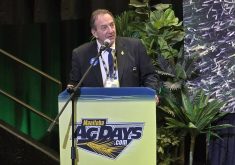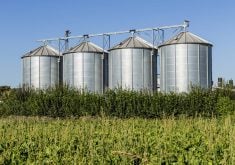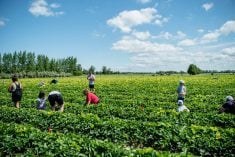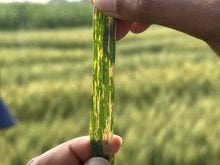It was a tough year for many Manitoba farmers and it could be an even tougher winter, according to farmers speaking at Keystone Agricultural Producers’ (KAP) fall General Council meeting Oct. 30.
“There will be farmers who will not make land payments and machinery payments due to the fact they have not got their crop, so there will be people struggling with investments of the past that they now have to deal with,” said Wawanesa farmer Simon Ellis.
That’s why KAP continues to lobby the Manitoba and federal governments for an AgriRecovery program, said KAP president Doug Chorney.
Read Also
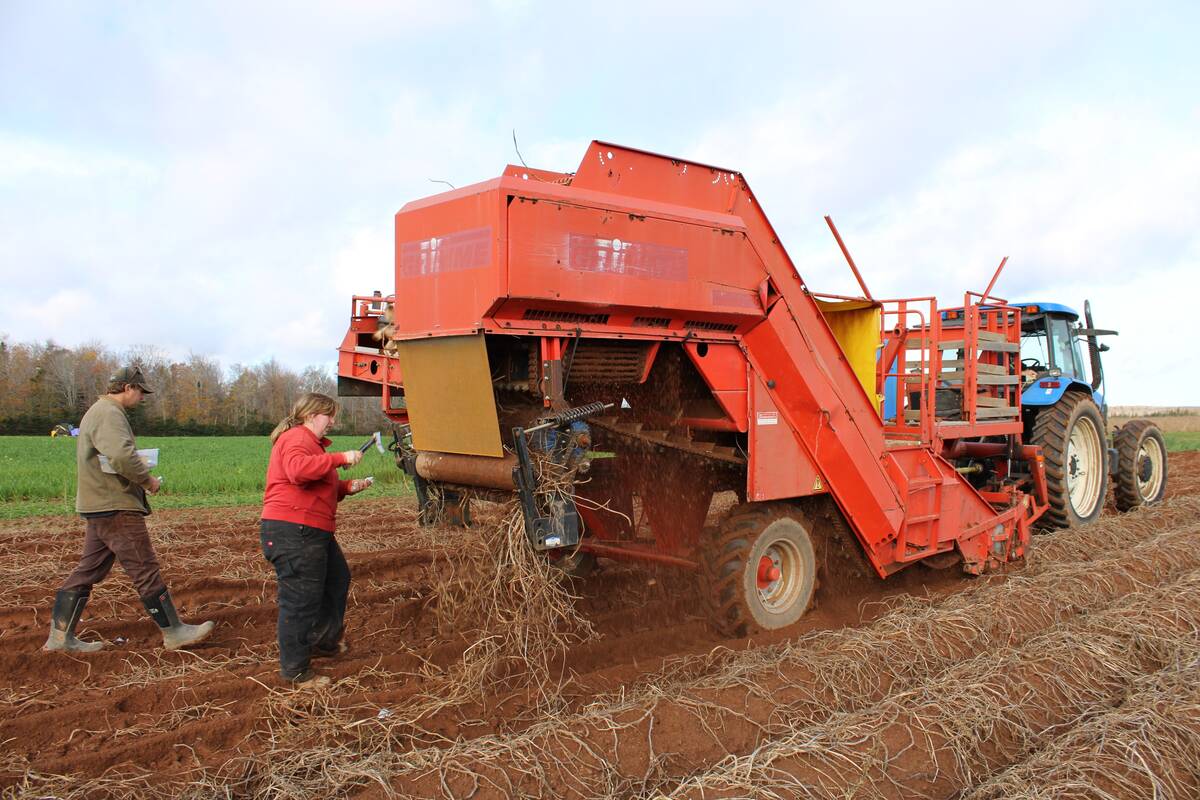
Vine crusher can smash weed seeds while squashing potato pests
Research in P.E.I. shows the potato vine crusher, meant to crush insect pests clinging to vines at harvest, can also help reduce the viable weed seed banks in potato fields.
KAP delegates also debated and then tabled for more study a resolution to make the deductible on Excess Moisture Insurance more affordable in areas hit repeatedly by too much spring precipitation.
“It’s not going to be an easy winter for many of us,” Chorney said.
Most farmers faced a wet, cool spring, followed by drought and then a late, wet harvest that reduced yields and crop quality, he said. Almost one million acres were too wet to seed in the spring and an estimated 600,000 acres of seeded crops were drowned, Chorney said.
While some KAP members said crops yielded better than expected in their districts, most said overall yields might be average. On top of all that, grain prices have been falling.
It’s not all bad. Cattle prices are very high, although some farmers lost pasture and are short of winter feed.
Hog prices are profitable and are expected to remain so until next year, Chorney said.
KAP has been pushing for an AgriRecovery program to fill the gaps not being covered by crop insurance, AgriStability and AgriInvest. The fact that after the 2011 flood, a program was announced in July doesn’t bode well for aid this year, Chorney said.
Farmers shouldn’t apologize for seeking government assistance to offset losses caused by bad weather, he said. Other industries, including the auto and oil sectors get help too, he said.
“We have a thriving economy in many cases because of the support the government puts behind industry and I think we’re no different,” Chorney said. “There are risks and challenges individual farmers cannot afford to bear alone. It’s a good public policy decision for governments to work with farmers.”
KAP delegates passed a resolution in favour of Excess Moisture Insurance (EMI) deductibles not increasing in municipalities where 50 per cent of the farmland went unseeded due to excessive moisture. Resolution mover Bill Campbell of Minto said the deductible, which increases by five per cent after every year there’s a claim, is necessary to discourage farmer mismanagement and abuse, but if half a municipality goes unseeded due to excessive moisture, it’s evidence the problem was the weather.
“We need to consider some of this stuff a national disaster when it rains that much and there’s that much flooding,” he said.
While agreeing with the resolution’s intent, Ste. Rose du Lac farmer Rob Brunel warned crop insurance programs must be actuarially sound.
That’s why KAP has suggested offsetting the increase in EMI deductibles through AgriRecovery, said KAP general manager James Battershill.





